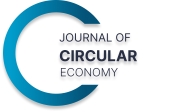Guide for Editors
EDITORS
Publication decision making
All contributions are initially assessed by a handling editor. JoCE operates under the Initial Editor Direct Decision (IEDD) model. The handling editor will provide an initial decision regarding the paper, indicating if the paper is, in principle, of acceptable quality (pending revisions) for publication or not.
The handling editor then validates their decision by considering feedback from fellow scholars from double-blind peer-review(s). It is the handling editor's responsibility to assess the quality of received reviews and ensure that they are free from any potential bias and or academic malpractice, such as excessive self-citation.
When bias or academic malpractice is suspected, the handling editor may take appropriate action to validate their suspicions before making a final publication decision.
The handling editors shall exclude race, gender, sexual orientation, religious belief, ethnic origin, citizenship or political philosophy of the authors from their decision-making processes and shall evaluate the manuscript based solely on its academic qualities, such as topic novelty, methodology, literature coverage, analysis and academic writing. Handling editors are further required to disclose to the editorial office any conflicts of interest before accepting to handle any submission.
Peer Review
The editorial office is responsible for handling peer reviews. It is their responsibility to ensure that the whole review process is double-blind and timely. Research articles and Reviews are reviewed by a minimum of two external reviewers, while Perspectives are reviewed by a minimum of one external reviewer. The handling editors are encouraged to request more reviews if deemed necessary.
Reviewers are selected based on the suitability of their expertise in the field relevant to the submission in question. JoCE is committed to ensuring that the reviewer selection is represented in an inclusive and diverse manner.
The editorial office must refrain from reaching out to reviewers who present a potential for conflict of interest (e.g. working at the same university, project or research unit as the author of the submission in question).
Confidentiality
All materials submitted to JoCE and communications with both authors and reviewers are subject to confidentiality. Any materials submitted to JoCE must not be used for personal advantage nor in the editor's own research unless the author of said materials gave explicit written consent.
Declaration of Competing Interests
Editors involved in the review and publication process must disclose any financial, institutional, or personal relationships that could be perceived as a conflict of interest in handling a manuscript.
Examples include:
- Current or recent collaboration with any of the authors
- Employment or affiliation at the same institution as the authors
- Involvement in the research or funding that supports the manuscript
Any editorial conflict of interest must be transparently disclosed as early as possible. Editors must recuse themselves from handling submissions where a conflict exists. Such manuscripts will be reassigned to an independent editor and remain subject to the journal’s standard peer review and editorial procedures without exception.
Failure to disclose relevant conflicts may result in reassignment of editorial duties and, in serious cases, formal investigation or removal from the editorial board.
When Editor Becomes Author
Should any editor from the editorial board or office decide to publish with JoCE, the author submitting the work must declare this conflict of interest upon submission so that the journal can take appropriate action to ensure the independence of the editor(s) and author(s) throughout all editorial processes. In the case of publication, the author's relationship with the journal must be disclosed in the declarations.
Editor’s Due Diligence After Publishing
If JoCE is presented with convincing evidence of academic malpractice in papers published in our journal, JoCE will retract such publication and follow up with swift action for correction to the record. Specific record correcting action is chosen on a case-by-case basis.
Receive an update when the latest issues in this journal are updated
Subscribe